YOU MUST CONTINUE AT ALL COSTS: talking with Kevin Killian about his TWEAKY VILLAGE
YOU MUST CONTINUE AT ALL COSTS
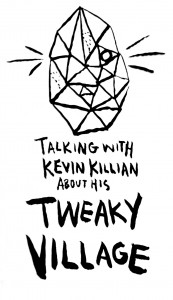
Kevin Killian is a prolific novelist, poet, playwright, photographer, and Amazon-reviewer known as one of the original New Narrative writers. He’s also the author of the new poetry collection TWEAKY VILLAGE from WONDER, 2014. It’s a wild and ranging collection of poems/narratives that deal with the author’s response to free-market capitalism, the constraints of the English language, the repetitious nature of porn, and much more.
I first met Kevin whilst TAing for Dodie Bellamy’s infamous “Writing on the Body” class at San Francisco State University. Kevin Killian taught (and still does) at California College of the Arts. One day Dodie was absent and her partner, Kevin, arrived as the substitute teacher. (What a pleasant surprise!) We performed one of his plays featuring Kylie Minogue and a host of 90’s celebs, unpacked some abject bodily poems, and left with our minds forever altered. I remember Kevin engaging a student who had very conservative/fundamentalist views about sex and drugs. Kevin kindly and patiently explained that sometimes you need those kind of experiences to figure out what kind of life you want to have. Here Kevin discusses making up for lost time, neoliberalism, genre collapse, loving Arthur Russell, San Francisco’s shifting economic landscape, Santa Claus as Bill Clinton, his photo project “Tagged,” and on and on and onward.
***
Matt L. Rohrer: Hi Kevin! Thanks for doing this interview! I LOVE TWEAKY VILLAGE Could you tell a bit of the story behind this book? What was going on in San Francisco, in your life, in the world that spawned these poems?
Kevin Killian: Thank you Matt. I suppose it is a book of defeat really. Just as while writing ARGENTO SERIES I came to realize how little I had done to stop the march of AIDS, TWEAKY VILLAGE is me wrestling with how little I did to combat neoliberalism, which manifests itself visually every time I walk out my door and see the new, hyperwired global capital that is San Francisco today. Another thing that happened is that I began teaching and thus mixing with younger people and the contradictions of their beauty (or youth, which is the same thing), and the shrinking possibilities our world, our country holds out to them makes me feel implicated in the very system I detest.
Kevin Killian’s SUMMER READS
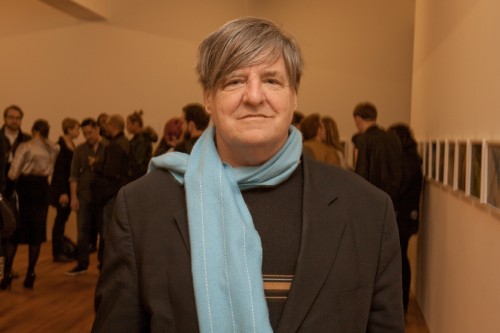
Photo Credit: Daniel Nicoletta
Kevin Killan’s summer reading picks:
***
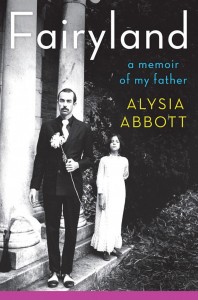 While waiting for Dodie Bellamy’s Cunt Norton to appear from Les Figues later on this summer, I’ll recommend a few books I know are already out. Fairyland, by Alysia Abbott (Norton) is the memoir of a young woman who grew up in the Haight-Ashbury, the only child of a single gay dad, and what happens when AIDS comes in to blow up her fragile world once again. Steve Abbott was a talented poet, thinker, novelist—and the man who coined the expression “New Narrative,”—one of my very first friends here in San Francisco. He’d be proud of the way his beloved and beautiful daughter has returned him to the world he left.
While waiting for Dodie Bellamy’s Cunt Norton to appear from Les Figues later on this summer, I’ll recommend a few books I know are already out. Fairyland, by Alysia Abbott (Norton) is the memoir of a young woman who grew up in the Haight-Ashbury, the only child of a single gay dad, and what happens when AIDS comes in to blow up her fragile world once again. Steve Abbott was a talented poet, thinker, novelist—and the man who coined the expression “New Narrative,”—one of my very first friends here in San Francisco. He’d be proud of the way his beloved and beautiful daughter has returned him to the world he left.
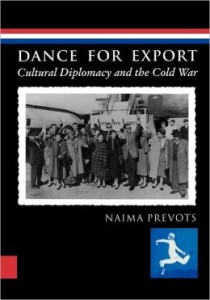 I’ve been reading Dance for Export: Cultural Diplomacy and the Cold War with much pleasure this weekend and last. In recent years I’ve come to understand generally that the Cold War of my youth impacted just about everything in culture too, as well as ideology, and that the US government secretly poured zillions of dollars into a propaganda game against the Russians to convince the world that, say, US abstract art was better than old-fashioned social realism. Naima Prevotz’ dance history brings us unto the Betlway and Manhattan boardrooms where specialized panels met to debate which US dance troupes were worthy of international exposure (Martha Graham, Jose Limon), and which were too avant-garde (Alwin Nikolais) or too politically suspect (Katherine Dunham). In general the US has always been eager to show the rest of the world what nice guys we are, and what great artists, and you know, for years I believed it. Now I see it’s all been a charade of spy vs spy, money vs. money.
I’ve been reading Dance for Export: Cultural Diplomacy and the Cold War with much pleasure this weekend and last. In recent years I’ve come to understand generally that the Cold War of my youth impacted just about everything in culture too, as well as ideology, and that the US government secretly poured zillions of dollars into a propaganda game against the Russians to convince the world that, say, US abstract art was better than old-fashioned social realism. Naima Prevotz’ dance history brings us unto the Betlway and Manhattan boardrooms where specialized panels met to debate which US dance troupes were worthy of international exposure (Martha Graham, Jose Limon), and which were too avant-garde (Alwin Nikolais) or too politically suspect (Katherine Dunham). In general the US has always been eager to show the rest of the world what nice guys we are, and what great artists, and you know, for years I believed it. Now I see it’s all been a charade of spy vs spy, money vs. money.
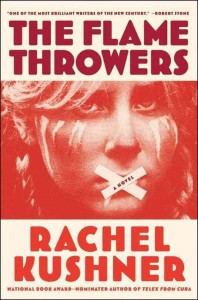 Some of this general background plays out in Rachel Kushner’s new novel The Flame Throwers—a book that needs no introduction from me but a stunning one nevertheless. I’m one who loved Telex from Cuba and have resented the years that have limped on by while I’ve been slavering for a new Kushner novel! Now here it is and I’m still in awe. Her novel of a woman driven by speed and curiosity to flout transnational borders in the service of avant-garde art reminds me so much of one of my old favorites, Joan Didion’s Play It As It Lays. But it’s as if there where a Joan Didion who knew about art instead of finding it, like all modern practices, ridiculous and appalling.
Some of this general background plays out in Rachel Kushner’s new novel The Flame Throwers—a book that needs no introduction from me but a stunning one nevertheless. I’m one who loved Telex from Cuba and have resented the years that have limped on by while I’ve been slavering for a new Kushner novel! Now here it is and I’m still in awe. Her novel of a woman driven by speed and curiosity to flout transnational borders in the service of avant-garde art reminds me so much of one of my old favorites, Joan Didion’s Play It As It Lays. But it’s as if there where a Joan Didion who knew about art instead of finding it, like all modern practices, ridiculous and appalling.
June 13th, 2013 / 11:05 am
Experimental fiction as genre and as principle
A few years ago at Big Other I wrote a post entitled “Experimental Art as Genre and as Principle.” That distinction has been on my mind as of late, so I thought I’d revisit the argument. My basic argument then and now was that I see two different ways in which experimental art is commonly defined.
By principle I mean that the artist is committed to making art that’s different from what other artists are making—so much so that others often don’t even believe that it is art. As contemporary examples I’m fond of citing Tao Lin and Kenneth Goldsmith because I still hear people complaining that those two men aren’t real artists—that they’re somehow pulling a fast one on all their fans. (Someday I’ll explore this idea. How exactly does one perform a con via art? Perhaps it really is possible. Until then, I’ll propose that one indication of experimental art is that others disregard it as a hoax.) Tao visited my school one month ago, and after his presentation some folks there expressed concern, their brows deeply furrowed, that he was a Legitimate Artist—so this does still happen. (For evidence of Goldsmith’s supposed fakery, keep reading.)
Eventually, I bet, the doubts regarding Lin and Goldsmith will fall by the wayside. Things change. And it’s precisely because things change that the principle of experimentation must keep moving. The avant-garde, if there is one, must stay avant.
That’s only one way of looking at it, however. Experimental art becomes genre when particular experimental techniques become canonical and widely disseminated and practiced. The experimental filmmaker Stan Brakhage, during the 1960s, affixed blades of grass and moth wings to film emulsion, and scratched the emulsion, and painted on it, then printed and projected the results. Here is one example and here is another example. And here is a third; his films are beautiful and I love them. (The image atop left hails from Mothlight.) Today, countless film students also love Brakhage’s work, and use the methods he popularized to make projects that they send off to experimental film festivals. (Or at least they did this during the 90s, when I attended such festivals; I may be out of touch.)
Those films, I’d argue, while potentially beautiful and interesting, are not necessarily experimental films. As far as the principle of experimentation goes, those students had might as well be imitating Hitchcock.
Spreadeagle by Kevin Killian
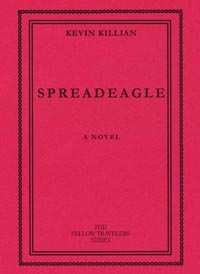 Spreadeagle
Spreadeagle
by Kevin Killian
Publication Studio, 2012
590 pages / $16 Buy from Publication Studio
There are moments when Evan Lysacek or whoever is figure skating on video. Where what you hear is the intense carving sound of the blade on the massive expanse of ice (that and tacky music); where what you see are limb size hocks of sparkling lycra (that and wisps of breath in the cold); where it’s about precision, carnival and also about risk, and where it feels like so much is at stake. There are moments like this when reading Kevin Killian’s new novel Spreadeagle: his wit as sharp as any Jackson Ultima Blade, his prose as sparkling as any Sharene and this novel as breathtaking, terrifying and exhilarating as a five rotation axe.
A figure skating move isn’t all that the title Spreadeagle might conjure up. It’s also a heraldic symbol, a ballroom dance move, a bondage restraint, a sexual position in which the legs are splayed akimbo, a method of a particular species of jumping spider swimming and the shape of the body adopted just prior to undertaking a sky dive. All of these seem like apt references, all in one way or another appropriate to the power play and textual and sexual politics that play out in this book.
The novel itself is spread spatchcock into two quite different – though linked- parts. The first is the very best sort of comic novel, with all the wit, humour and deliciously droll dialogue of “A Nest of Ninnies” or “What’s for Dinner?” It takes place in the grand San Francisco home (so grand it’s mistaken for an embassy or a museum) of novelist Danny Isham. Danny is the author of the successful Rick and Dick series of gay novels (so wildly successful that he’s perennially mistaken for Armistead Maupin- even by Francois Ozon!) and his partner is Kit, an activist, who, as we meet him, is returning from Cuba surrounded by a troupe of Kylie Minogue-obsessed holiday makers.
January 28th, 2013 / 12:00 pm
A Poem is a Counterpunching Radio: Jack Spicer Better Late than Never

There should be no rules for this but it should be
simultaneous if at all.
Homosexuality is essentially being alone. Which is
a fight against the capitalist bosses who do not want
us to be alone. Alone we are dangerous.
Our dissatisfaction could ruin America. Our love
could ruin the universe if we let it.
If we let our love flower into the true revolution
we will be swamped with offers for beds.
– “Homosexuality and Marxism” (from Three Marxist Essays)
+
Several months ago Wesleyan University Press sent me My Vocabulary Did This To Me: The Collected Poems of Jack Spicer (Peter Gizzi & Kevin Killian, eds). I got side-tracked and hadn’t really looked at it, until the other day when I read Language, a collection from later in Spicer’s life (he died at age 40, in 1965). It right about knocked me on my ass, and you’ll be hearing more about Vocabulary in the weeks to come, but for right now, here’s some of Spicer’s work that’s available online courtesy of the Electronic Poetry Center. Also: audio at PennSound. Also, if you’re feeling like you need a proper introduction to JS, here again is Jared White’s fine long essay on Vocabulary, which I linked to in passing several months back.

